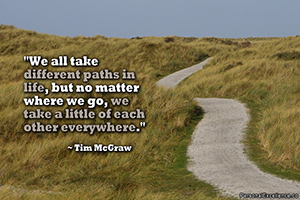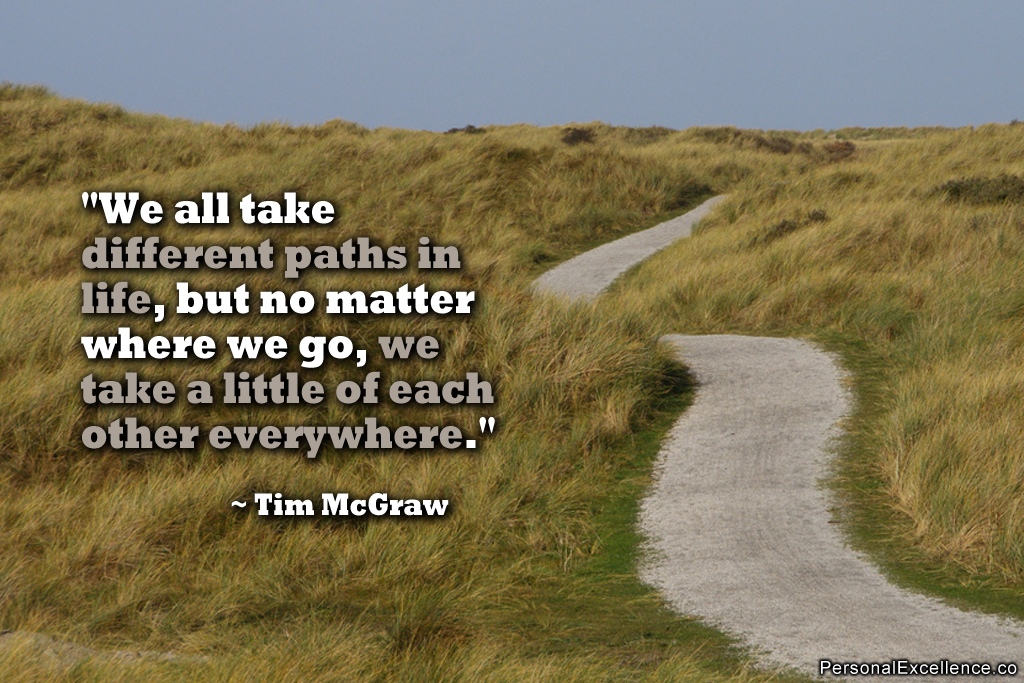
(Image)
“First they ignore you. Then they laugh at you. Then they fight you. Then you win.” — Mahatma Gandhi
Are there any naysayers in your life? Someone who is discouraging you from pursuing your goals and dreams, perhaps? Someone who thinks that you are joking and says “It’s impossible!” when you share your grand plans for your future? Someone who sabotages you when you try to cultivate a new habit or quit a bad habit? Someone who is keeping you from achieving your highest potential?
Naysayers in my Life
At one point in our life, we are bound to meet naysayers, be it colleagues, acquaintances, friends, or even close friends and family. Naysayers are termed as such because their favorite response is “nay.”
- Say you want to quit drinking alcohol. They’ll go “nay” and tell you that drinking a few more mugs won’t kill you.
- Say you want to lose weight and you eat healthily. They’ll go “nay,” that healthy food is boring, and then tell you to eat unhealthy, junk food instead.
- Say you are considering pursuing your passion. They’ll tell you that it’s not feasible in the bad economy today (the economy is always bad to them), that it’s not going to make you money.
Most of the times, naysayers have little to add to the conversation, only endeavoring to extinguish your hopes and dreams.
I have met my fair share of naysayers in life.
Back in school, one of my teachers was a huge naysayer. She would discourage us (me and my classmates) from aiming too high in life. By high, I mean trying to aim for anything at all. She judged us as lousy students (because we were in a low-ranking school) and treated us with disdain. Rather than encourage us as a teacher, she was often a wet blanket, telling us to opt for pragmatic courses and career paths vs. set big goals and dreams. She practiced favoritism, being biased towards one to two students whom she saw as “smart” (based on arbitrary factors, not performance) and regarding everyone else as stupid. She was never passionate when teaching in class, just doing what was needed to get by.
When I became a vegetarian in 2008, I had the weirdest reactions from people. A then-colleague said he bet that I would give up after a few weeks (I had no idea why he said that as I had told him that I was becoming vegetarian as a lifestyle choice, and not as some fad diet). Another colleague made a joke during a team lunch, saying that maybe plants had feelings too and I should stop eating vegetables since I was becoming vegetarian for non-cruelty reasons. One senior director tried to taunt me with meat and seafood during a team dinner. Other people challenged my decision, even though I didn’t broach the topic nor attack their diet choices. One friend said he was going to make me want to eat meat again. This never happened.
When I decided to quit my day job to pursue my passion, everyone said no. A close friend said I was just going through a phase and I was going to regret this in the future. Another friend asked me if anyone said I was crazy. People, from my personal mentor to friends, advised me against it. Each had his/her own set of reasons why it was a bad decision. Some said that economic recession was coming soon. Some said that my job was fantastic and that I would never get such a great job in the future. Some said that I was too young and didn’t have the right skills and know-how to achieve success in my new path. Some said that I was wasting my previous education and squashing my career path in the corporate world.
Dealing with Naysayers
Each time I meet a naysayer, I’ll try to understand where he/she is coming from. Does he/she have a valid viewpoint, or is he/she just speaking from his/her fears? If it’s clear that the person is projecting his/her own fears rather than giving constructive thoughts, I’ll disregard his/her input. My goals are precious, and I’m not going to entertain anyone who tries to dump toxic waste onto my goals.
After I know that someone is a certified naysayer, I’ll reduce contact with him/her, because I’m not interested to deal with someone’s fears and hangups about my goals.
For each of the goals I mentioned earlier (striving for my highest results in life, taking on a vegetarian diet, and quitting my job to pursue my passion), I ended up achieving them — despite promises of failure by the naysayers. Each time, I discovered that the journey was nothing like what the naysayers had painted it to be. Each time, I found more joy, love, and fulfillment on this new path than if I had stuck to my old ways. Each time, I experienced more personal growth than if I had done nothing about my goals.
So why do the naysayers try to scare you from your goals?
One possibility is that they are scared themselves. They have lived their lives in fear, so they are constantly thinking, making decisions based on this fear. They think that all hell would break loose if they get out of their comfort zone, so they try to enforce this thinking on anyone who tries to venture into new territory. Of course, this is a fallacy.
It’s unfortunate, but you need to remember that these are their fears, not yours, and there’s no reason why you should own their fears about your goals. Your life is yours and you don’t need others to tell you what you should do. If you’re facing a naysayer, here are eight tips for you.
8 Tips To Tackle Naysayers
1) Safeguard your goals
Imagine you’re creating a beautiful, grand sandcastle at the beach. Now, imagine someone pouring water on top of your castle every minute. Will you be able to build anything eventually?
No, of course not. Each time you build your castle foundations, they instantly get demolished by the gush of water. In the end, you’ll get some clumpy-lump-of-an-excuse for a castle, not to mention you feel highly frustrated. All your efforts to create your castle will be in vain.
That’s the same thing when you listen to naysayers. Being discouraging and skeptical, they tend to focus on the downsides, the “dangers,” and — this one’s my favorite — anecdotal failure stories about your goal(s). For every second you listen to them, it’s like pouring acid over your dreams. In the end, you are left with a demolished self-confidence and a wavering “Should I still do this?” thought about your dreams, whereas you were highly optimistic and confident prior to your encounter with them.
Your goals are too precious to let others taint them. Protect them. Don’t give naysayers the opportunity to damage your dreams by not even raising the topic in the first place.
For example, I’m very selective about who I share my goals and dreams with. I rarely talk about them unless people ask, and even then I only share selected bits. That’s because the early stages of any goal formation process are always the most vulnerable, and it’s imperative that I only let the most conscious and supportive people in on what I’m doing. If the person has a track record of being negative and discouraging, I most certainly won’t let him/her on into my plans.
2) Evaluate the naysayer’s background
Before considering anyone’s advice, I’ll always evaluate how the person is doing in his/her life. I’ll consider the following:
- Is this person living a life that I want for myself?
- Is the person successful in the goal that I’m pursuing?
- Does this person have knowledge and expertise in what he/she is commenting on?
If the answers are “no,” “no,” and “no,” then I’ll discount what he/she says. After all, this person is where he/she is precisely from following his/her own thoughts and advice. By heeding his/her words, it can only get me to where he/she is, not where I want to be.
For example, if you want to lose weight and eat healthily, but your overweight colleagues are telling you to ditch the healthy salads and eat junk food for lunch/dinner, you will do well to ignore them. If you want to set up a business and you’re getting “advice” from people who don’t know anything about entrepreneurship and have never set up a business their entire life, you should take what they’re saying with a pinch of salt. If you want to quit smoking but your smoking peers — with their incessant coughing and bad breaths — keep telling you to take one more puff, it may be better to ignore them.
3) Evaluate the naysayer’s words
Another tip is to evaluate the naysayer’s words. As the CEO of your life, you are the best person to assess and decide what works and doesn’t work for you. Consider the following:
- What he/she is saying — does it resonate with me?
- Is there validity behind his/her words?
- Will applying this advice make me better off?
- Is he/she coming from a place of fear or love?
If the answer is “no” to questions one to three, and the person is coming from a place of fear, then this advice isn’t for you — even if it is well-intended. Don’t let yourself get weighed down by it.
4) Ignore them. Tune out.
If you have concluded that this person is giving discouraging, bad advice, then tune out. Just because someone has advice for you doesn’t mean that you need to heed him/her.
For example, when I embarked on my 21-day water fast (eating and drinking nothing but plain water) in 2011, I received a huge amount of cautionary advice telling me to “stop or you’re going to die.” Now I would have thought so too had I not done my own in-depth research, plus consulted with experts (people who have fasted before) no less. I realized that contrary to popular belief that not eating any food for more than a day would result in death, our body has the ability to sustain itself for some time without food, with the duration being dependent on our individual fat storage. (You can read more about this in my fasting series.)
Because the “advice” that many were giving me wasn’t informed advice but merely a reflection of their fears, I tuned them out. Having done my own professional research, cluttering myself with people’s fears wasn’t helping me but merely distracting me from my goal. In the end, I completed my 21-day fast, experienced much emotional and physical detox, and came to important revelations about my relationship and food — all of which wouldn’t be possible if I had given up at the start.
Buddha once said that if someone offers you a gift and you decline it, the gift is still that person’s. Likewise, if someone wants to offer you their two cents, you may not stop them from speaking but you can certainly choose not to accept it. You always have a choice in how you react.
5) Don’t engage in the discussion
As resolute as you are about your goals, naysayers are staunch in their views too. Hence, there’s no need to seek affirmation nor agreement with them about your plans. If they insist on voicing their dissent, simply keep your responses short and simple, such as “I see” or “Okay.”
Don’t assert yourself, fight back, or explain your stance. Trust me — it’ll be a complete waste of time. The naysayer will come up with all reasons to justify why he/she is right and why you’re wrong, which will only frustrate you. Not only that, the naysayer thrives on discouraging you, so being resistant will only fuel him/her to rebut further.
Switch topics if you have to. With no way to air his/her dissent, the naysayer will (hopefully) stop discouraging you.
6) Eject the naysayer from your life (if you can)
Since naysayers are a shroud to life’s possibilities, spending time with them will only darken your worldview. I recommend ejecting them from your life if possible, or reducing contact with them if this isn’t an option. Whether the person is a colleague, a friend, or a family member, there is no mandate that you have to spend 24/7 with him/her:
- At work, there are other colleagues you can hang out with.
- Socially, find like-minded friends to spend time with.
- At home, just because you live with your family doesn’t mean you need to spend all waking hours with them. Even when you are spending time together, you don’t need to discuss your goals with them all the time (see Tip #1 on safeguarding your goals).
Sometimes it may be sad if we have loved ones who are naysayers; it’s as if we can’t share our goals with people we love without being discouraged. However, think about it positively: perhaps they are being discouraging because they are unaware of the larger possibilities of life. By being resolute in your goals, pursuing them, and succeeding in them, you will serve as an inspiration to them to think big and pursue their goals too.
7) Surround yourself with enablers
You are the average of the five people you spend the most time with, so choose five great people to spend time with, as opposed to hanging out with naysayers.
Think about the people who are supportive or will be supportive of your goals if you told them. Think about how you can increase the time you spend with them starting from today.
If you don’t have any of such people in your life, it’s okay. Think of the people out there in this world who are doing what you want to do, then increase your contact with them through their works, such as their books, interviews, TV shows, and so on.
Back when I was still in my corporate job, I had nobody to turn to regarding the pursuit of my passion. After I quit my job, I immediately surrounded myself with the best-selling self-help books, connected with other personal development bloggers online, and read related blogs that would help me in my journey. Doing this made me feel like I had a network of people supporting me in my goals when I knew no one originally.
Remember you’re not alone in your goals. There’s Personal Excellence which you’re reading now, with over 700 articles that I’ve written over the past 10 years. There’s also The Personal Excellence Podcast and my YouTube channel where I have created many free podcasts and videos for you to live your best life. These resources have helped many transform their lives, and will help you live the life of your dreams as well.
8) Think back to your vision for yourself
Last but not least, think about your ideal vision. What is your ideal vision for your life?
Whenever you get distracted by naysayers, it’s only because you’ve taken your eyes off your goals. If that’s the case, all you need to do is to look back at them. Recall what exactly you want to achieve. Think about what exactly you want to get out of your life. Then, ask yourself if it’s worth it to put your goals on hold because of a couple of naysayers. For me, the answer is always clear and simple: it’s a “no.”
Don’t deny yourself of the life you should live just because of naysayers. At the same time, make sure you’re not being a naysayer to others. When people share their goals with you, be sure to be encouraging and supportive to them. Don’t be a wet blanket to others just as you don’t want others to be a wet blanket to you.
I’d like to leave you with this quote by John Eliot:
“History shows us that the people who end up changing the world – the great political, social, scientific, technological, artistic, even sports revolutionaries – are always nuts, until they are right, and then they are geniuses.”
Are you ready to rock your life? Let’s start living our best life starting from today. :)
Get the manifesto version of this article: How To Naysay the Naysayers [Manifesto]







 I hope you find my content helpful. Join my community of 65,000 readers and get my latest articles delivered to your inbox. Your email is safe and I never send spam.
I hope you find my content helpful. Join my community of 65,000 readers and get my latest articles delivered to your inbox. Your email is safe and I never send spam.
May God bless u, Actually i was moved when u said u want to do this till death…i pray may God give u long life and good health added with prosperity .. I can say that your writing add alot to my life .
just power off your mind – this is will be better advice
Some naysayers are in the form of let me help u-in time they r an authority-help?
Here is one thing though, what do you do when the situation and the naysayers involves dating? Because I’ve been rejected by a lot of women even though I’m a “gentleman.” And some people have ranked my looks (on a 1-10 scale) at a 6, while a few have called me either a 8.5 or 9. Regardless, this has really hurt my confidence in the dating world because I’ve been rejected so many times, and it has made me believe/fear that I may end up having to “settle” even though I refuse to accept that as a viable option. I’ve seen guys who were less handsome than me with gorgeous women, like 9’s and 10’s. My attitude has been that if they can do it, so can I. But I’ve been discouraged a lot. I keep going on with this “I can do it” attitude, but at the age of 24, the thought of “how long will it take to finally settle down with a good person?!” is TORTURING my mind day in and day out. I want to be free of this stress. And yes, I care about personality too, most of the beautiful women I’ve met have been stuck up and mean, and the few I meet who are nice are taken or don’t like me. How can I keep my confidence and hopes high in the midst of all this?
Don’t focus so much on a relationship and finding “the one”. Focus on improving yourself and fulfilling other areas of your life and you will attract the right people.
This article contains some real gems. I especially relate to family naysayers. Recently realizing that I am in a relationship with a naysayer – a wet blanket type – I attracted what I was used to being around. It’s not easy to eject these people, but finding the proper outlets to share or nurture the creative, productive side of life is the way to go. Naysayers don’t need to know and so I limit what I tell them. I’ve learned that naysayers are excellent at being know-it-alls, full of advice with no relation to my inner goals. I can only go so far with “they mean well”, maybe it’s true, but what about my inner goals, which need to manifest in my life. A lesson learned, basically, plant your seeds in rich soil. Even one like-minded friend can be enough…and stay focused on the goal not the distractions.
I think the only time when naysayers or anyone in our life affects us in a negative way is when we give them more importance than our own selves,we let them rule over our minds.So,i believe the only thing we could do is : Keep focussing on our goals,dreams and paths that lead us in that direction giving our life its due importance.
I love these suggestions, Celes. One observation…
“Don’t Engage In The Discussion”
For some people that might be easier said than done, especially if it’s a home environment or a close work environment. I’ve had this experience. I perpetually turned the discussion around to something that felt better and uplifting. At a certain point, my positive energy became stronger than the negative pull others were exerting. It wasn’t because I was trying. It was because I FELT it. And (most of) the others weren’t particular negative. It was just a habit they acquired over time.
Point being…I think most people, when given the option of being happy or not, will choose happy. They just need a role model.
Larry
Commenting for this post is closed.